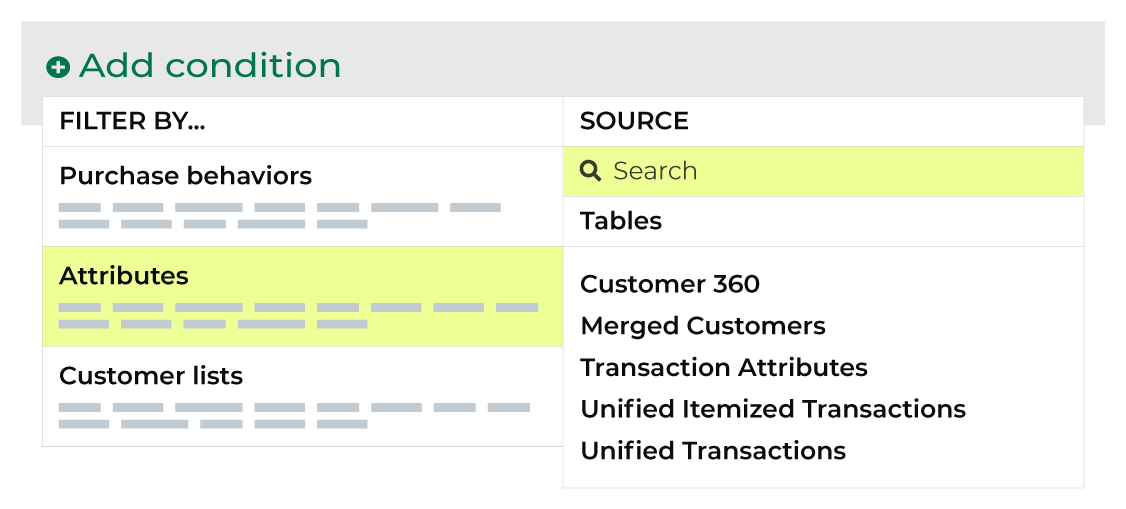Order IDs¶
An order ID is the unique identifier for the order. It links together all items in the same transaction. For returns and cancellations, the order ID is the unique identifier for the original order, including returned or canceled items.
First order ID is the order ID for a customer’s first order.
Latest order ID is the order ID for a customer’s most recent order.
Second order ID is the order ID for a customer’s second order.
Use in segments¶
You can add order ID attributes to a segment from the Segment Editor. Click Add condition, and then choose Attributes.

Enter “order ID” into the search feature to filter the list of available attributes. Choose first order ID, second order ID, or latest order ID to add the attribute to a segment. Select an operator, and then finish defining the conditions for how this attribute should be applied to the segment.
Available operators¶
The following table lists the operators that are available to order ID attributes.
Note
Order ID attributes have a string data type. All string data types share the same set of operators. Recommended operators for this attribute are identified with “ More useful” and operators with more limited use cases are identified with “ Less useful”.
Operator |
Description |
|---|---|
contains |
Returns customer records with values that match a string of characters. |
does not contain |
Returns customer records with values that do not match a string of characters. |
ends with |
Returns customer records with values that end with the specified characters. |
is empty |
Returns customer records that do not have a value in this field. |
is exactly |
Returns all customer records with values that match the specified characters. |
is not empty |
Returns customer records that have a value in this field. |
is not exactly |
Returns customer records that do not match the specified characters. |
starts with |
Returns customer records that start with the specified characters. |